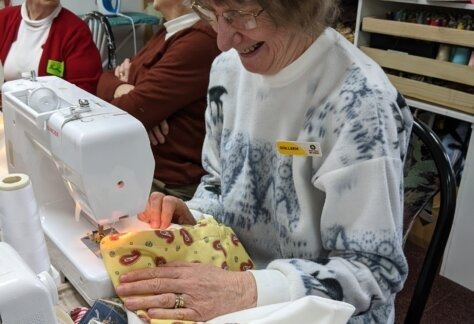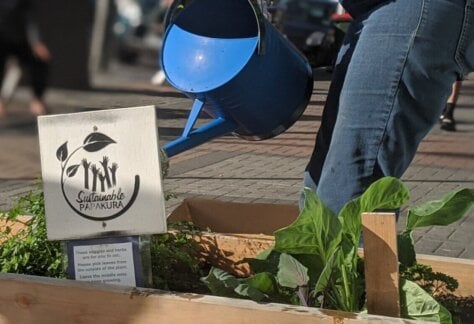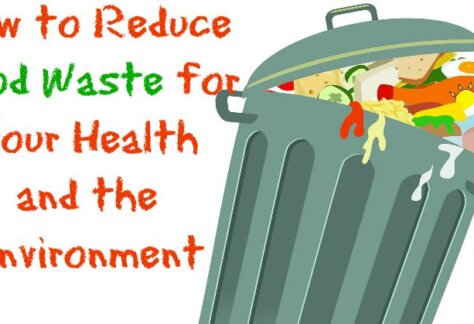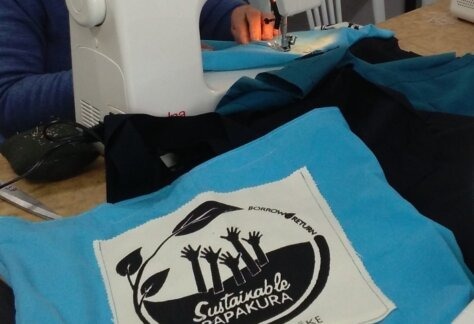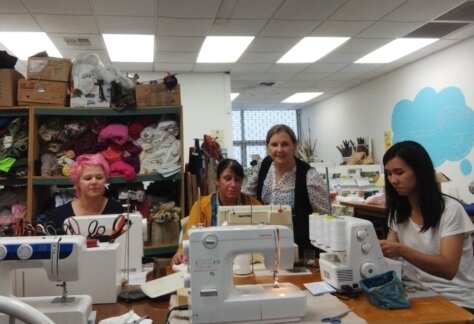Resource Management at Home
Auckland-wide, approximately 443 tone's of waste is collected every week from households. This page will show you how we can change our consumer habits, provide information to reduce and recover waste that we do create at home, and put in place systems to manage that resource.
Social pressures can make it difficult for us to recognize the difference between what we need and what we want and we may have been persuaded that retail therapy can satisfy our emotional needs. Often the instant gratification of a purchase gives a short term high but no long term benefits. We can look for alternatives to retail therapy to satisfy our needs, or choose our purchases more carefully to be sure they really do meet our needs.
Personal considerations
- Is this a need or a want?
- Will it keep me warm, nourished, active, happy, stimulated, feeling good?
- Can I realistically create it at home using available resources?
- Are there better options?
environmental considerations
- Is it made from a renewable resource?
- Does its production create toxic emissions?
- Does its manufacture use non renewable energy?
- Is it made locally?
- Can it be re-used, re-purposed or efficiently recycled?
- On Balance Is This An Ethical Purchase?
Bin Audits
Looking in our Bins helps us see where we can make changes to reduce what we throw out. Initially, as your landfill bin fills more slowly, you may notice you create more recycling, but gradually this will diminish as you reduce, re-use and re-purpose. You'll notice you're putting your bins out less often, and have the satisfaction of saving money by NOT buying so many bin tags.
Visit futurefit.nz and take the Quiz to discover your impact on the planet and actions you can take to reduce it.
Below are a few ideas for reducing the amount of waste you generate in your home. See below for our sustainable living workshops that will give you the skills and knowledge to make positive change.
Use Beeswax Wraps and re-usable containers to keep food fresh.
Gel lids on pots and bowls can replace plastic wrap
Think about the packaging and containers that products come in. Avoid buying products in plastic containers. Choose recyclable products with minimal or no packaging or look for alternatives.
Reduce your packaging waste by growing your own veges and flowers.
Consider what you can enjoy making at home, or communally. The time and money used may be offset by less time spent shopping and driving; lower costs, less packaging and petrol, lower carbon emissions; more time socialising and building satisfying relationships with family, friends, or neighbours; and the real satisfaction of creating something yourself. Use Sustainable Papakura Workshops for ideas to get you started
Use soap and shampoo bars, Learn how to make your own cleaners.
Cut old soft fabric into squares instead of buying wipes. Wash then reuse
Remember to take your re-usable Shopping and Produce Bags for veggies, fruit and dry goods.
Buy loose, un-packaged products wherever possible
Food is a major component of household waste. To reduce this we can embrace 'slow' food over 'fast' food and learn shopping, cooking and storage skills which reduce waste and save us many dollars as well: an average of $600.00 a year for NZ households. Finally, Composting, Worm Farming, or Bokashi systems together with our Council Food Scraps Bins, enable us to use food scraps, paper and cardboard to effectively enrich the soil.
With a little bit of creativity and effort, a large proportion of what we would normally throw away can be re-used, repaired or repurposed. See below for our sustainable living workshops that will give you the skills and knowledge to implement these strategies.
Re-Use
Re-use involves minimal processing, usually just a wash and maybe re-labeling
Some ideas
- Re-use plastic bags, jam jars
- Gift unwanted items to others or op-shops.
- Use or start community lending libraries for toys, tools, party gear, clothes
- Donate to Sustainable Papakura's Swap Stop
Repair
Repair involves some effort, but saves the original item from landfill. It can stimulate local enterprises
Some ideas
- Identify local repair services,
- learn some new skills ourselves eg: how to sharpen tools, maintain your property and equipment
- order new parts
Re-Purpose
Re-purposing requires skill, imagination and effort, but is a creative activity that is highly satisfying as an art and craft genre, as well as recovering resources. Re-purposing can also be a catalyst for new business enterprises.
Some ideas
- Cut up old t-shirts for yarn or garden twine.
- Make gumboots into plant pots
- Enter the SMART Competition

